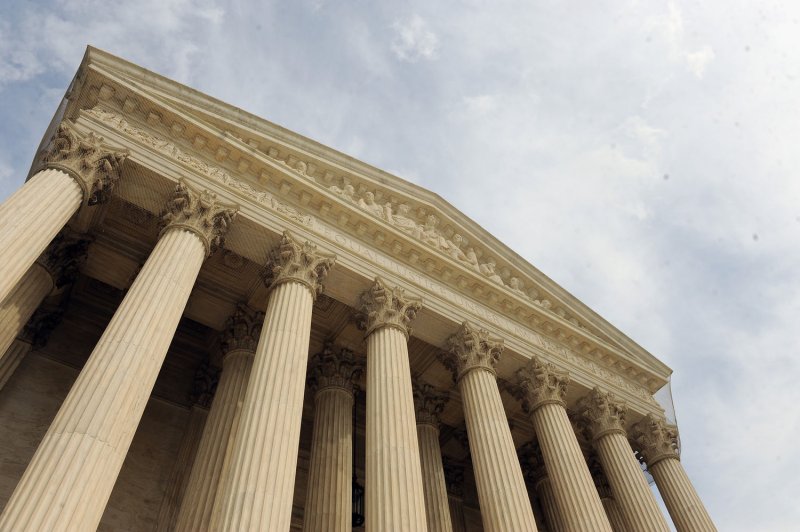The Supreme Court in Washington, DC. Justices voted 6-3 to reverse an appeals court decision in favor of Shirley Ree Smith's trial on the death of 7-day-old Etzel Glass' death. UPI/Roger L. Wollenberg |
License Photo
WASHINGTON, Oct. 31 (UPI) -- The U.S. Supreme Court Monday voted 6-3 to reverse an appeals court ruling in favor of a California woman convicted in the shaking death of her grandchild.
At Shirley Ree Smith's state trial, experts on both sides presented conflicting evidence on whether 7-day-old Etzel Glass' death was caused by sudden infant death syndrome or by shaken baby syndrome. Smith was convicted and sentenced to 15 years, and her state appeals were denied.
But on constitutional review, a panel of the U.S. Court of Appeals for the 9th Circuit repeatedly ruled that there was insufficient evidence for the conviction.
Without hearing argument, a majority of the U.S. Supreme Court disagreed.
"The decision below cannot be allowed to stand," the majority said in an unsigned opinion handed down Monday. "This [Supreme] Court vacated and remanded this judgment twice before, calling the panel's attention to this court's opinions highlighting the necessity of deference to state courts in [constitutional] cases. Each time the panel persisted in its course, reinstating its judgment without seriously confronting the significance of the cases called to its attention."
The unsigned opinion cited 1979's Jackson vs. Virginia, which "makes clear that it is the responsibility of the jury -- not the court -- to decide what conclusions should be drawn from evidence admitted at trial. A reviewing court may set aside the jury's verdict on the ground of insufficient evidence only if no rational trier of fact could have agreed with the jury. What is more, a federal court may not overturn a state court decision rejecting a sufficiency of the evidence challenge simply because the federal court disagrees with the state court. The federal court instead may do so only if the state court decision was 'objectively unreasonable.'"
The justices suggested that Smith look to clemency rather than the federal courts because of the number of years she has served in prison.
The case was sent back down to the appeals court for a new ruling consistent with the majority opinion.















